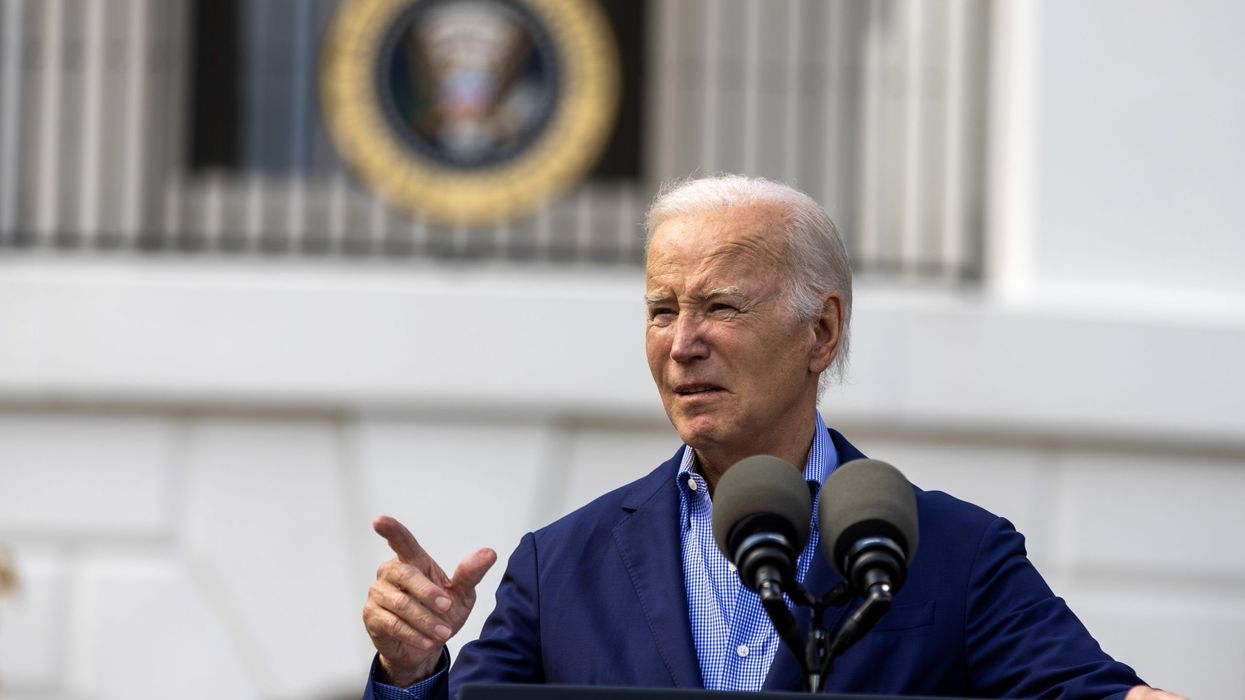The court in California has received a strong plea from the Biden administration, urging the denial of the writ of habeas corpus submitted by Tahawwur Rana, a Pakistani-origin Canadian businessman.
The administration reiterated its stance that Rana should be extradited to India, where he is wanted for his alleged involvement in the 2008 Mumbai terror attacks.
In a previous development, a US court had granted approval for the extradition of 62-year-old Rana to India. Currently, Rana is held in custody at the Metropolitan Detention Centre located in Los Angeles.
India had initially filed a complaint on June 10, 2020, requesting the provisional arrest of Rana for the purpose of extradition. The Biden Administration has consistently supported and granted approval for Rana's extradition to India.
"The United States respectfully requests that the Court deny Rana's petition for a writ of habeas corpus," said E Martin Estrada, US attorney for Central District of California in his petition filed before the US District Court for the Central District of California.
Opposing Rana's petition, Estrada said the petitioner is unable to demonstrate that India's extradition request lacks sufficient evidence of probable cause.
Last month, Rana filed a writ of habeas corpus challenging a court order which approved the US government's request that he be extradited to India.
Rana's legal counsel presented arguments stating that his extradition would contravene the US-India extradition treaty on two grounds.
Firstly, Rana had already undergone trial and been acquitted in the US District Court for the Northern District of Illinois for charges stemming from the same actions that India aims to prosecute him for.
The extradition is therefore barred under Article 6(1) of the Treaty, which declares that "(e)extradition shall not be granted when the person sought has been convicted or acquitted in the Requested State for the offence for which extradition is requested".
Second, the materials submitted by the government of India -- comprising principally transcripts and exhibits from Rana's trial in the Northern District of Illinois -- fail to establish probable cause that he committed the offences with which India has charged him.
The Indian government's extradition request thus fails to satisfy Article 9.3(c) of the Treaty, according to Rana's attorney.
Rana's attorney made a plea for the court to grant the writ of habeas corpus, reject the extradition request, and order Rana's immediate release. On June 23, the US attorney countered Rana's claims regarding the legitimacy of his business operations in Mumbai.
According to the US attorney's submission, the evidence fails to substantiate Rana's assertion that his Mumbai office conducted lawful business.
Furthermore, even if legitimate business activities were established, it does not negate the possibility that Rana's business also served as a front for his childhood friend, Pakistani-American David Coleman Headley, who was involved in terrorism-related activities in Mumbai.
"Rana's claims about who funded the Mumbai office also do not relate to whether Rana lacked knowledge of and support for Headley's activities. Similarly, even if Rana hoped to continue business operations in Mumbai, the evidence reveals that neither Rana nor Headley renewed the business lease that expired approximately two weeks before the start of the Mumbai attacks," Estrada argued.
Headley was one of the main conspirators of the 26/11 Mumbai attacks. Rana was arrested in the US on an extradition request by India for his role in these attacks.
India's National Investigation Agency (NIA) is probing into his role in the 26/11 attacks carried out by Pakistan-based Lashkar-e-Taiba terrorists in 2008.
The NIA has said that it is ready to initiate proceedings to bring him to India through diplomatic channels.
Estrada said the fact that Rana received a warning before the attacks does not preclude a finding of probable cause.
"In the fall of 2008, when Headley learned that Rana was going to travel to China and India, he decided to warn Rana that an attack may be forthcoming through a co-conspirator," he said.
"While the details of the conversation between Rana and the co-conspirator are unknown, a September 7, 2009 FBI intercept reveals that Rana told Headley that their co-conspirator had warned him (Rana) that the Mumbai attacks were imminent. Contrary to Rana's claim, the co-conspirator's warning does not suggest that he was unaware of the upcoming attacks," the US attorney argued.
Instead, it merely suggests that Rana was not aware of the date of the attack, which is consistent with the fact that Headley had informed Rana earlier that the attack plans were being delayed.
Estrada said that Rana's claim that he did not review Headley's visa application is not supported by the evidence.
"Rana does not dispute that Headley's visa applications contain false information; rather, he claims that it is 'unlikely that (he) checked (the applications) for accuracy' because he would have corrected a statement indicating that Headley worked for 'First World Immigration', instead of 'Immigrant Law Centre'," he said.
"While 'Immigration Law Centre' is a 'DBA for Raymond J. Sanders, Rana's business partner, that business and 'First World Immigration' shared the same address and telephone number. Significantly, India issued Headley a business visa, even though he wrote, 'First World Immigration' on his 2006 visa application and the accompanying support letter from Mr Sanders referred to the employing entity as 'Immigration Law Centre'."
Thus, Rana's claim does not undermine probable cause and is not persuasive, the US attorney said.
A total of 166 people, including six Americans, were killed in the 2008 Mumbai terror attacks in which 10 Pakistani terrorists laid a more than 60-hour siege, attacking and killing people at iconic and vital locations of Mumbai.
(PTI)




